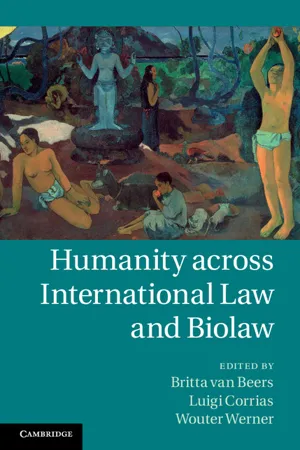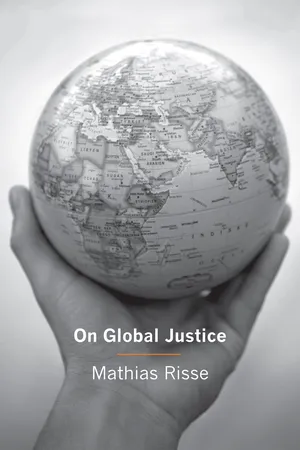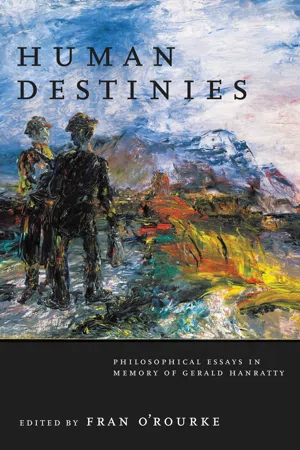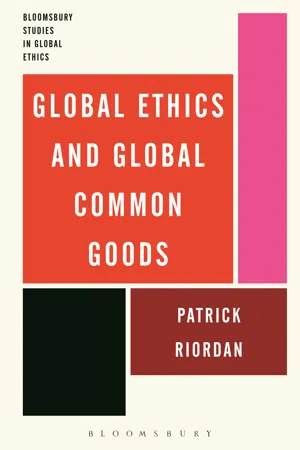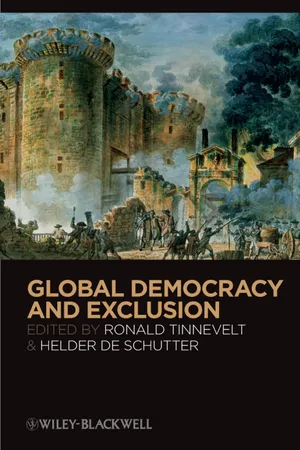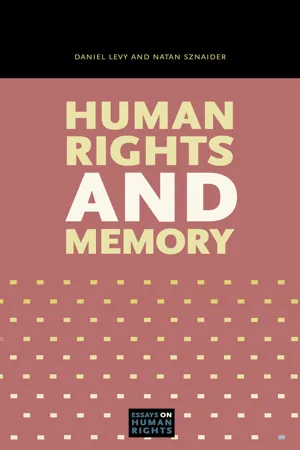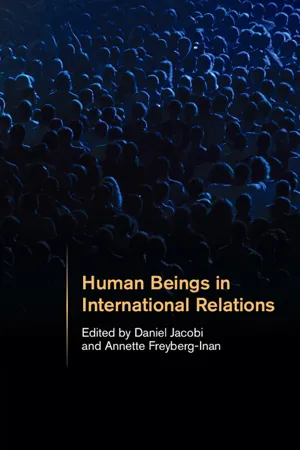Politics & International Relations
Common Humanity
Common humanity refers to the idea that all human beings share a fundamental connection and similarity, regardless of their cultural, social, or political differences. This concept emphasizes the importance of recognizing and respecting the inherent dignity and worth of every individual, and promoting cooperation and understanding across diverse communities.
Written by Perlego with AI-assistance
Related key terms
1 of 5
7 Key excerpts on "Common Humanity"
- eBook - PDF
- Britta van Beers, Luigi Corrias, Wouter G. Werner(Authors)
- 2014(Publication Date)
- Cambridge University Press(Publisher)
Brunnée, “Common Areas, Common Heritage and Common Concern,” in Daniel Bodansky, Jutta Brunnée and Ellen Hey (eds.), The Oxford Handbook of International Environmental Law (Oxford University Press, 2007), 550–573; E. Hey, “Common but Differentiated Responsibilities,” in Wolfrum, Max Planck Encyclopedia of Public Inter- national Law. 717 J. Lin, “An Overview of the Clean Development Mechanism in Southeast Asia,” in Kheng-Lian Koh, Lin-Heng Lye and Jolene Lin (eds.), Crucial Issues in Climate Change and the Kyoto Protocol: Asia and the World (Hackensack, NJ: World Scientific, 2010), 116–118. 718 A. Gupta, “Transparency as Contested Political Terrain: Who Knows What about the Global GMO Trade and Why Does It Matter?,” Global Environmental Politics 10 (2010): 31–52. 262 ellen hey that extend across the globe also at the level of individuals and groups in society and including the interests of future generations; and a conceptu- alization of humanity that extends beyond the cosmopolitan to the pro- tection of what it means to be human and our collective human dignity, what might be referred to as a post-cosmopolitan conceptualization of humanity. These three conceptualizations of humanity illustrate that our conceptualizations of humanity change over time as our understanding of human interdependencies evolves. But, more is at stake, I suggest. Each conceptualization of humanity also comes with certain associ- ations, given the historical context in which it emerged and in which it was implemented. Grotius’ conceptualization of humanity is associated with liberal market freedom and freedom of access and not with benefit and burden sharing arrangements either internationally or at the level of individual transactions. - eBook - ePub
- Mathias Risse(Author)
- 2012(Publication Date)
- Princeton University Press(Publisher)
However, these may still be rights people have everywhere against their respective governments (and limited in scope to their country) because nowadays just about everybody lives in a state. Let me conclude. This chapter has integrated four themes, distinct enough to be treated separately but intertwined because each contributes its share to an account of Common Humanity as a ground of justice: the institutional stance on development, in part 1 ; the notion of a conception of human rights, in part 2 ; the conception of human rights built around the idea of Common Humanity, in part 3 ; and finally, in part 4, an engagement with Caney’s nonrelationism, to argue that his more expansive understanding of Common Humanity in an account of global justice is implausible. We are now also well prepared for later discussions of human rights in chapters 7, 11, 12, and 13. Those chapters discuss my conception of human rights as membership rights in the global order, which integrates the conception in this chapter (the distinctively human life being one source from which membership rights are derived). We have in any event not exhausted the claims of Common Humanity. Such claims also reenter in part 2, which discusses collective ownership of the earth as a ground of justice. But that theme is not most plausibly understood as a development of the idea of a distinctively human life. For that reason, and because of its far-reaching implications, I discuss collective ownership in a separate part of the book, a discussion to which we turn next. - eBook - PDF
Human Destinies
Philosophical Essays in Memory of Gerald Hanratty
- Fran O'Rourke(Author)
- 2012(Publication Date)
- University of Notre Dame Press(Publisher)
Only the equal dignity and respect owed to an other could underpin such abrogation. No merely common enterprise, de-fined by the attainment of immanent historical goods, is sufficient. 11 We are familiar with such formulations in light of the invocation of rights in the tradition of liberal democracy. Yet the audacity of this recognition never ceases to astonish. Such a public order acknowl-edges, indeed is built on the acknowledgment, that its interests are out-weighed by the priority of rights owed to its least significant member. Even projects that might hold untold benefits for millions do not allow us to set aside the fundamental rights of a single one. Human progress cannot be bought at the cost of the slightest inhumanity. By reflecting on this most basic principle of politics we begin to gain a sense of what the good of a community of persons must be: that is, the clear under-standing that there is no commonality beyond the good of individual persons themselves. To the extent that persons are constitutive of the common good between them, they cannot be reduced to their re-spective contributions. Over and above whatever they create between them there is the unsurpassable depth of persons who are its source. The situation is familiar to us as we reflect on any of the common en-terprises in which we find ourselves engaged, whether it is building 632 David Walsh something, playing a game, or competing against one another. Even in war the uneliminable humanity of the other calls forth our respect. All adumbrations of a just war are derived from this. The other who must be killed is nevertheless an other. The common task has its imperatives built into it, but it can never include the abrogation of the persons who carry its imperative within them. The worker, as John Paul II formu-lated it, is always more than the work. - eBook - ePub
- Patrick Riordan(Author)
- 2014(Publication Date)
- Bloomsbury Academic(Publisher)
Even if Reus-Smit is correct in his insistence that the concern with rights in international order has a long pedigree and did not begin at mid-twentieth century, it is nonetheless the case that since the ending of the Second World War the recognition of human rights has been a major part of a complete revision of the shared horizon of international relations. This revision is variously labelled a reconceptualization and a transformation of ideas and practice in the relations between global players. Andrew Hurrell (2007; 2010) has drawn attention to this dynamic and listed all its dimensions, stressing the common aspect of its ambitious normative implications. In particular, he notes the expansion of the domain of international law with an increase in density and penetration of rules and attention to implementation. ‘A minimally acceptable order came increasingly to be seen as involving both limits on the freedom of states to resort to war and the creation of international rules that affected the domestic structures and organization of states, invested individuals and groups within states with rights and duties, and sought to embody some notion of a general common good’ (Hurrell, 2010, p. 52). States could not avoid the pressures arising from the new understanding of their role in the international order, even if it would be more convenient or comfortable for them to do so. The former Westphalian idea of sovereignty gradually gave way to a shared view that the legitimacy of states depended on how they treated their own citizens. Hurrell points to the key conceptual change ‘from the idea of the state as sovereign to idea of state as agent – an agent acting both in the interests of its own citizens and on behalf of an international community that is increasingly supposed to embody and reflect shared interests and shared values’ (2010, p. 52). Throughout his commentary on these developments Hurrell draws attention to the dimensions of shared meaning that constitute the horizon of international affairs. He stresses shared values, shared interests, shared normative expectations and shared ideas, and even mentions the notion of a general common good. This might be elaborated further as the object of concern for cooperating partners. The fostering of shared understanding and the maintenance of agreement on basic values and principles and the upholding of human rights would belong among the common goods of collaborating parties.However, Hurrell also notes developments in recent years that point to a revival of a Westphalian view in practice, not least because of the shift in the global distribution of economic power. All the more reason for collaborating parties in international relations to make it their common concern that the sharing of values, meanings and standards achieved to date not be diluted. It belongs to the global common good to care about these intellectual, moral and spiritual goods. But Hurrell also notes how the resilience of the Westphalian state system is making the realization of the liberal dream of an international order based on human rights more and more elusive. A number of factors are at play in these dynamics, most noticeably the emphasis on security in the context of combating perceived global terrorism. But the interest in state security is not the only influential factor in the resilience of the nation state: Hurrell points to the prevalence of nationalism as a source of identity and self-understanding, the strengthened economic role of states in the context of globalization, as well as the perception of the balance of power in both regional and global terms in the foreign relations of sovereign states (2010, pp. 67–8). Those who wanted to see a shift from a pluralist world of many states involved in power politics to a solidarist world of trans-national institutions securing human rights must be patient in accepting that the dream will not be realized so soon. - eBook - ePub
- Ronald Tinnevelt, Helder De Schutter, Ronald Tinnevelt, Helder De Schutter(Authors)
- 2011(Publication Date)
- Wiley-Blackwell(Publisher)
10 UNIVERSAL HUMAN RIGHTS AS A SHARED POLITICAL IDENTITY: IMPOSSIBLE? NECESSARY? SUFFICIENT? ANDREAS FØLLESDAL Human rights scholars may worry about the present popularity of human rights talk. This is not only because of the growing mismatch between strong vocal support for human rights and weak adherence to the same norms on the ground. Another ground for worry is that human rights seem to be regarded as the appropriate solution to more and more problems. Does this popularity come at the expense of intellectual stringency about the proper function—or functions—of human rights? One of several suggested roles for human rights is as part of citizens’ “common political identity” in a stable legitimate political order—be it at the national or regional levels—or even for a future, legitimate global political order. Thus Charles Beitz observes that “[t]o whatever extent contemporary international political life can be said to have a ‘sense of justice,’ its language is the language of human rights” (Beitz 2001, 269). What are we to make of such proposals? Should human rights be part of—or even exhaust —the values or norms that democratic citizens must share, if their democratic institutions are to survive over time? Beitz’s apparently affirmative answer is not obvious; even the thoughtful Jürgen Habermas and David Miller beg to disagree. These disagreements seem to stem from competing views of the role that a common political identity plays. The present reflections address one aspect of this issue—namely, the claim that the requisite common political identity must be unique to members of the political order, to the intended exclusion of outsiders. Hence wariness about human rights in this role, since they by now are so broadly shared—at least nominally. I shall deny this assumption: the function of a common political identity does not require it to be unique to members - eBook - PDF
- Daniel Levy, Natan Sznaider(Authors)
- 2010(Publication Date)
- Penn State University Press(Publisher)
We consider the recent proliferation of human rights ideals as a new form of cosmopolitanism, exemplifying a dynamic through which global concerns become part of local experiences. The choice of “cosmopoli- tanism” as a new moral and political idiom in this connection is not arbitrary. It relates to political and intellectual forms predating the era of the nation-state. Crucially, it has resurfaced at a time when the basic premises of the nation-state have been challenged and the shape of its sovereignty is being transformed. Naturally, this does not mean that cultural and ethnic nations are merely illusions or that the identities they provide are nothing more than mistakes or delusions. If that were the case, the concept of cosmopolitanism would be no different from a reproduction of a virulent universalism. 3 Rather, we need to differentiate the social modalities that deal with difference, such as universalism, rela- tivism, ethnicity, nationalism, cosmopolitanism, and multiculturalism. Universalism obliges us to respect others as equals as a matter of prin- ciple, yet for that very reason it does not involve any requirement that would arouse curiosity or respect for what makes others different. On the contrary, the particularity of others is sacrificed to a postulate of uni- versal equality that denies its own context of emergence and interests. human rights in a cosmopolitan age 7 We suggest a different approach to cosmopolitanism that is based on a “universalistic minimum” involving a number of substantive norms that must be upheld at all costs. These substantive norms include the sanctity of the body and the avoidance of unnecessary cruelty. We use the term “cosmopolitan common sense” when we have good reasons to assume that most individuals would be willing to defend this minimum (Beck and Sznaider 2006, 19). - eBook - PDF
- Daniel Jacobi, Annette Freyberg-Inan(Authors)
- 2015(Publication Date)
- Cambridge University Press(Publisher)
Equipped with reason, these humans were conceived to be at least potentially able to tame any dark side of their character and to pursue freedom, liberty, and equality as citizens. While stressing the importance of international insti- tutions to accomplish shared goals, liberals particularly emphasized the foundational role of the individual in bringing these social forms about. 53 The constitutional state and international law were among the most notable political notions that received renewed impetus based on this particular conceptualization of the human. 51 On the pros and cons of different histories and historiographies of IR, see Brian C. Schmidt, “On the History and Historiography of International Relations,” in Walter Carlsnaes, Thomas Risse, and Beth A. Simmons (eds.), Handbook of International Relations (London: Sage, 2002), pp. 3–22. 52 Norman Angell, The Great Illusion: A Study of the Relation of Military Power to National Advantage (Cambridge: Cambridge Scholars Publishing, 2009 [1910]). 53 For a well-known contemporary example, see Andrew Moravcsik, “Taking Preferences Seriously: A Liberal Theory of International Politics,” International Organization 51/4 (1997), 513–53. 14 Daniel Jacobi and Annette Freyberg-Inan However, the experience of a second world war within less than a quarter century promoted the views of a different group of scholars. They stood opposed to those of the former and brought a different concept of the human to the fore. While Edward Hallett Carr set the tone when he molded their formative historical experience into his now famous book title, 54 it was arguably the work of Hans Morgenthau that most prominently reformulated ideas of how the human should be stu- died in world politics. Influenced by other contemporaries and a long- standing tradition of pessimism about human malleability, Morgenthau preserved an anthropological lens and explicitly conceptualized the human in terms of human nature.
Index pages curate the most relevant extracts from our library of academic textbooks. They’ve been created using an in-house natural language model (NLM), each adding context and meaning to key research topics.
